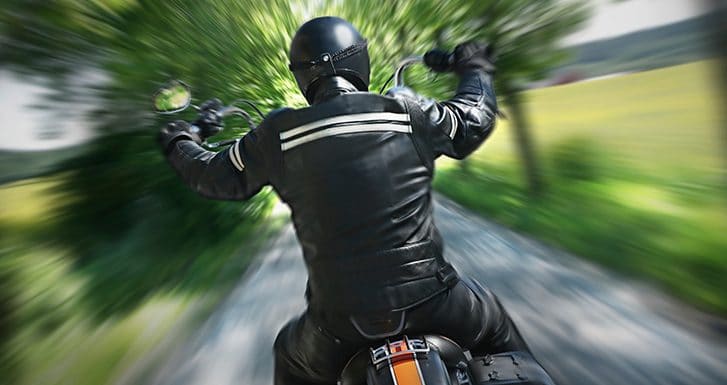
Motorcycle Safety Checklist for Indiana Motorcyclists

For many individuals, riding a motorcycle is a form of recreation they enjoy on weekends or vacations. For other riders, their motorcycle represents an economical form of transportation to and from work, school, or other locations. Whatever the reasons riders may have for riding a motorcycle, one constant remains the same for all riders. Motorcycle accidents can cause traumatic, life-altering injuries and death.
Why are Motorcycle Accidents Different?
Motorcycle accidents differ from accidents involving passenger vehicles in at least five key elements.
-
Motorcycle crashes can result in severe injuries and life-threatening conditions.
Because motorcyclists do not have the same protection in a crash as motorists have in a vehicle, riders can be more likely to suffer traumatic injuries such as traumatic brain injuries and spinal cord injuries. In addition, motorcyclists have a higher likelihood of suffering life-threatening injuries in a motorcycle accident. In 2016, motorcycle deaths were 28 times more common than fatalities for passengers in other vehicles.
-
Insurance companies like to blame motorcyclists even if the rider is not responsible for causing the crash.
There is an unfounded and unfair stereotype associated with motorcyclists. Many people believe that the majority of motorcyclists are reckless and dangerous. They speed, weave in and out of traffic, and do not wear protective gear. Therefore, riders must be at fault for a crash or at least partially at fault for injuries sustained in a motorcycle accident. Insurance companies use this stereotype to cast blame on the rider to deny motorcycle accident claims or undervalue valid injury claims.
-
Road and weather conditions can be a factor in a motorcycle crash.
It can be more difficult for a rider to control a motorcycle when weather and road conditions are poor. Ruts, potholes, and crumbling pavement can be a huge hazard for a motorcyclist. When defective roads or negligent maintenance of roads is a factor, a government agency or contract may be to blame. In addition, other drivers can contribute to the accident, thereby making them partially to blame even though the road or weather conditions were also a factor.
Be Safe When You Ride — Perform a Motorcycle Safety Checklist
Before you go riding, make sure you consider the following motorcycle safety checklist items:
- Check Tires Before Riding — You need to ensure your tires have good tread and have the right pressure before riding. You have two wheels instead of four wheels; therefore, you need to ensure they are in good working order.
- Wear a Helmet and Protective Gear — Motorcycle helmets, gloves, boots, and protective clothing reduces the risk of serious injuries in a motorcycle accident.
- Check the Brakes — Good brakes are essential during a ride. Brakes that are worn down can contribute to a motorcycle accident.
- Check Mirrors and Lights — You need to be able to see behind you, and you want others to see you. Therefore, make sure your mirrors are clean and not cracked. Check to make sure all lights are working to help increase your visibility to other motorists.
- Check the Throttle and Clutch — The throttle and clutch should feel natural. If either stick, a serious accident could occur if they fail to operate correctly during your ride.
- Fluid Levels — As with any motor vehicle, you should always check the fluid levels periodically, especially with older models.
Checking items before a motorcycle ride can save your life.
Call an Indianapolis Motorcycle Accident Attorney for Help
If you are injured in a motorcycle crash, it is important to consult with an experienced Indianapolis motorcycle accident attorney as soon as possible
You can also chat with a representative 24/7 online to get the help you need now or contact our office by calling 1-800-265-9881 to schedule a free consultation with an Indianapolis motorcycle accident attorney.
